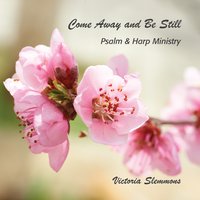The moderator of the presbytery that first took me under care for inquiry and eventually ordination later went on to serve as a seminary president, and near the end of that run, as I recall, she was making the rounds with an address entitled, "Context is Everything." I never heard the address. I am sure it contained a great many good insights. But I found the title provocative and not a little annoying. "A New Creation is Everything." Now, that would be biblical! But context? It seemed to me that such a grand claim was only bound to advance more of the relativism that was swamping "everything."
That said, let's give her the benefit of the doubt and apply some context to a text that many evangelicals find so inviting: "For surely I know the plans I have for you, says the Lord, plans for your welfare and not for harm, to give you a future with hope." (Jer 29:11)
The first and most obvious contextual move would be to examine the verse immediately prior to this one. (Hint: it always is.) "For thus says the Lord: Only when Babylon’s seventy years are completed will I visit you, and I will fulfill to you my promise and bring you back to this place." (Jer 29:10)
But what is this about "Babylon's seventy years"? Ah, the Jewish exiles to Babylon are being addressed. They will be there in Babylon for quite a while, yes, for seventy years. Why? Leviticus 26 records the terms of God's covenant with Israel, and vv. 34-35 specifically forecasts how, if the people would become persistently disobedient in flouting God's statutes, commandments, ordinances, and break his covenant, they should be exiled from the land so that the land itself could rest and enjoy its sabbaths.
Then the land shall enjoy its sabbath years as long as it lies desolate, while you are in the land of your enemies; then the land shall rest, and enjoy its sabbath years. As long as it lies desolate, it shall have the rest it did not have on your sabbaths when you were living on it.
Meanwhile, the last chapter of 2Chronicles records how this prophetic condition of the covenant was, in fact, fulfilled and the penalty paid. Speaking of Nebachudnezzar king of the Chaldeans, it says:
He took into exile in Babylon those who had escaped from the sword, and they became servants to him and to his sons until the establishment of the kingdom of Persia, to fulfil the word of the Lord by the mouth of Jeremiah, until the land had made up for its sabbaths. All the days that it lay desolate it kept sabbath, to fulfill seventy years. (2Chron 36:20-21)

